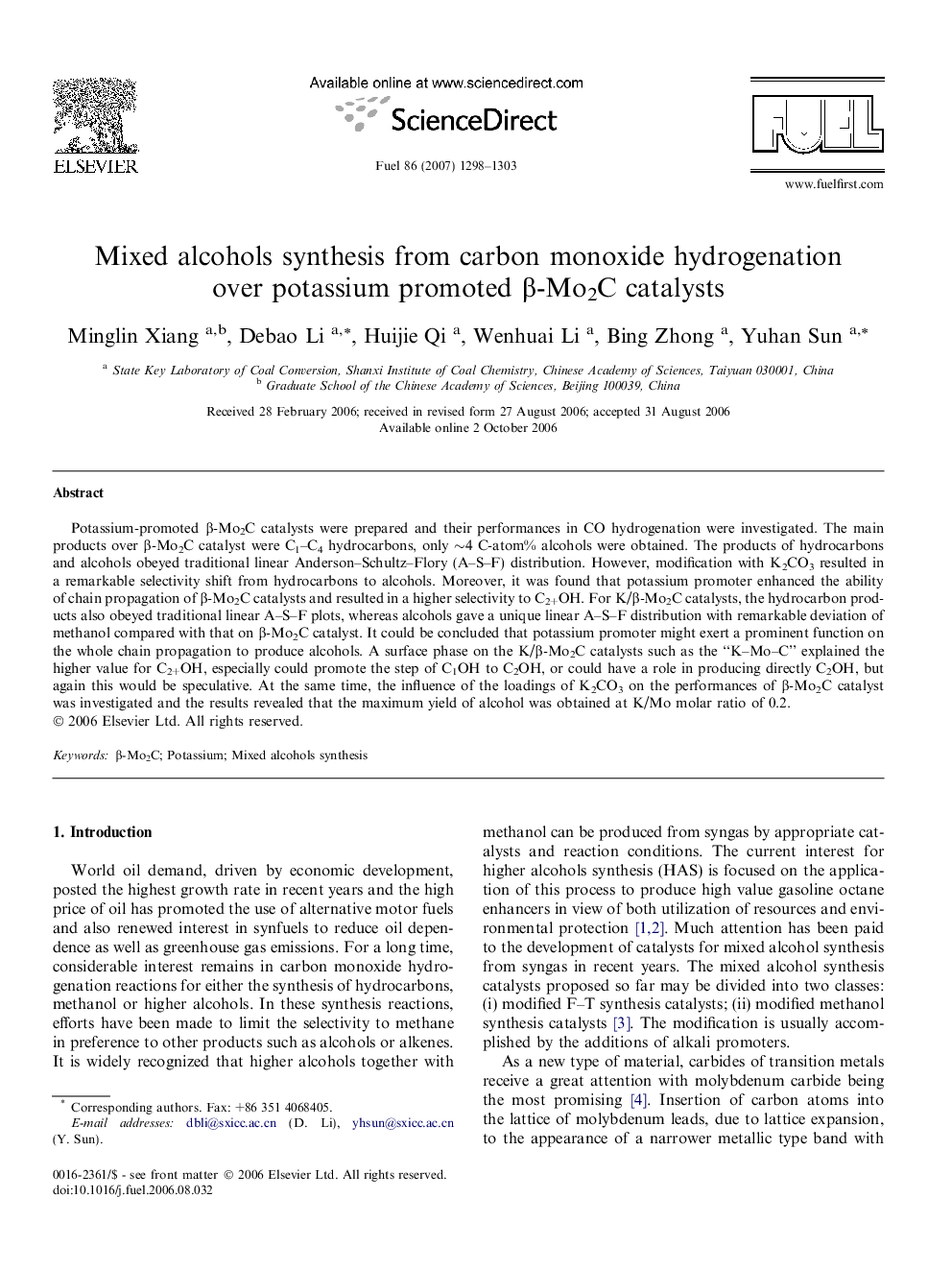| Article ID | Journal | Published Year | Pages | File Type |
|---|---|---|---|---|
| 207874 | Fuel | 2007 | 6 Pages |
Potassium-promoted β-Mo2C catalysts were prepared and their performances in CO hydrogenation were investigated. The main products over β-Mo2C catalyst were C1–C4 hydrocarbons, only ∼4 C-atom% alcohols were obtained. The products of hydrocarbons and alcohols obeyed traditional linear Anderson–Schultz–Flory (A–S–F) distribution. However, modification with K2CO3 resulted in a remarkable selectivity shift from hydrocarbons to alcohols. Moreover, it was found that potassium promoter enhanced the ability of chain propagation of β-Mo2C catalysts and resulted in a higher selectivity to C2+OH. For K/β-Mo2C catalysts, the hydrocarbon products also obeyed traditional linear A–S–F plots, whereas alcohols gave a unique linear A–S–F distribution with remarkable deviation of methanol compared with that on β-Mo2C catalyst. It could be concluded that potassium promoter might exert a prominent function on the whole chain propagation to produce alcohols. A surface phase on the K/β-Mo2C catalysts such as the “K–Mo–C” explained the higher value for C2+OH, especially could promote the step of C1OH to C2OH, or could have a role in producing directly C2OH, but again this would be speculative. At the same time, the influence of the loadings of K2CO3 on the performances of β-Mo2C catalyst was investigated and the results revealed that the maximum yield of alcohol was obtained at K/Mo molar ratio of 0.2.
